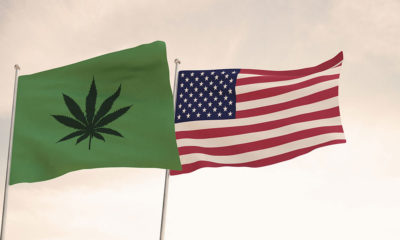
Legal
Typo in California Pot Law Leads Cities To Quick Bans
A mistake in the text in California’s new medical marijuana law, the Medical Marijuana Regulation and Safety Act (MMRSA), has caused 19 cities – and counting – to ban or restrict dispensary cultivation and delivery in advance of an inadvertent and quickly-approaching deadline.
March 1, 2016 will arrive merely 143 days after California Governor Jerry Brown signed the historic legislation on Oct. 9, 2015 and only 60 days after the MMRSA takes effect when the new year arrives Friday. Nevertheless, under section 11362.777(c)(4) of AB 243, one of the three bills that comprise the MMRSA, that appears to some cities to be the current, and inadvertent, deadline for localities to adopt their own rules or else lose the ability to opt out later.
“During the scramble at the end of the legislative session this year, an inadvertent drafting error placed a deadline on local jurisdictions, requiring them to adopt their own land use regulations for medical cannabis cultivation by March 1, 2016, or turn that responsibility over to the state,” wrote State Assemblyman Jim Wood (D-Healdsburg), who authored the relevant section of the MMRSA, in an open letter to local officials December 17 explaining the mistake. “As soon as I was aware of the error, I published a letter in the Assembly Journal, the official record of the Assembly, declaring my intention to pass urgency legislation as soon as the Legislature reconvenes in January.”
Although a spokesperson for Governor Brown told the Los Angeles Times it supports Wood’s emergency fix and all parties agree such legislation would pass, the damage is likely already done in the localities that have been spurred to action by the deadline.
Grover Beach, in San Luis Obispo County, plans to move forward anyway with a cultivation ban within city limits. Despite being aware of the imminent legislative fix to the unintended deadline, its City Council debated the issue when it met four days after Wood’s open letter, and “ultimately directed staff to bring back an ordinance banning cultivation, to be considered at its first meeting”on Jan. 4.
Hezekiah Allen, Executive Director of California’s highly influential Emerald Growers Association, a growers lobbying group representing the Emerald Triangle’s cannabis farmers, told Cannabis Now the mistaken deadline was likely a “catalyst” for cities with a preexisting propensity to ban cannabis.
Sharing that view, Don Duncan, California Director of patient-advocacy group Americans for Safe Access, said he had “not seen any jurisdiction that allowed or tolerated medical cannabis cultivation or dispensing ban that activity in light of the mistaken March 1 deadline in the MMRSA.”
Although Allen cautioned his group had not done a full-scale analysis of the reasons given by cities that had acted quickly to ban dispensaries, his cursory review revealed that each city acting quickly to ban cultivation and/or delivery of cannabis had failed to support either the original Proposition 215 in 1996 or the recent Proposition 47 criminal justice reform measure in 2014, suggesting possible ingrained hostility to cannabis legalization.
“For two decades, nothing was done to mitigate or change that (anti-cannabis) prejudice,” observed Allen, referring to the time between Prop 215 and MMRSA. “A lot of the relationship-building has not been done” with some localities that never voted for Prop 215 in the first place and remain hostile to new regulation today.
Indeed, among the 19 cities cited by the Times as having taken action prior to the deadline, Guadalupe has banned medical marijuana cultivation and delivery. So has Santa Paula, Morgan Hill, La Cañada Flintridge and Lompoc. Antioch, Artesia, Newport Beach, Palm Desert, Pasadena and Santa Maria have banned dispensaries, the latter only allowing delivery under heavy regulation.
“While the bans are discouraging,” Duncan told Cannabis Now, “they have not had a significant effect on local access to medical cannabis.”
In response, ASA has developed a Local Access Project to organize its California members in their local areas with tools to advocate for licensing rather than banning. Duncan’s group also provides resources to local lawmakers including a model local cultivation licensing ordinance.
If there’s a silver lining to the bans, it’s that despite hiccups with MMRSA implementation in some cities, they’re occurring now rather than a year from now when California will likely be facing implementation of the Adult Use of Marijuana Act. Much better to get early hiccups out of the way now and get cities thinking about the issue before being caught flat-footed a year from now, Allen said.
To implement both laws simultaneously “would have been an overwhelming public policy challenge,” he said. The 2016 head start regulating medical cannabis, he hopes, will lead to a much smoother transition if and when the state legalizes adult use.
“I can say with absolute certainty the people want to have a well-regulated cannabis industry.”
Should cities be allowed to ban cannabis cultivation? Let us know what you think.

























